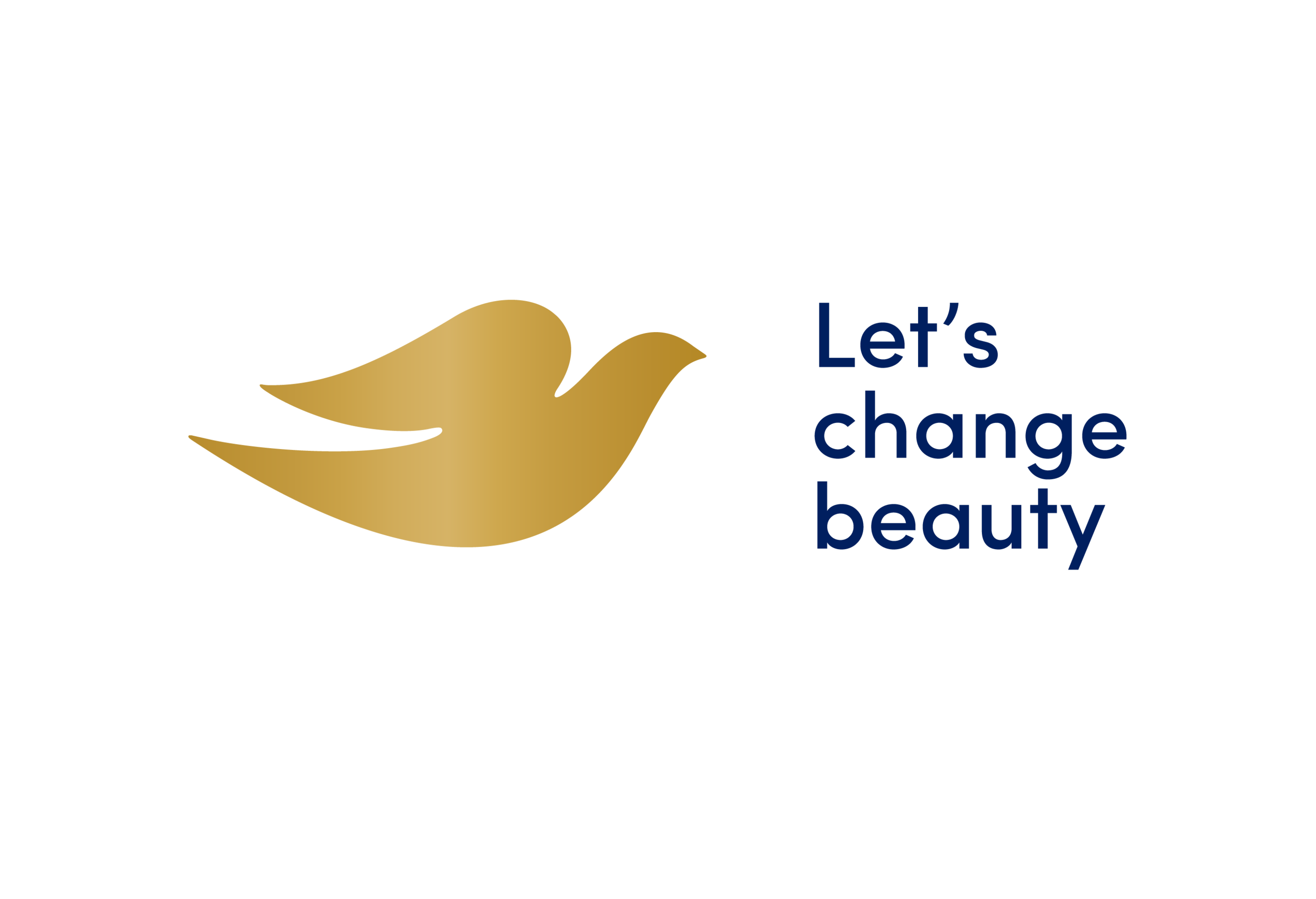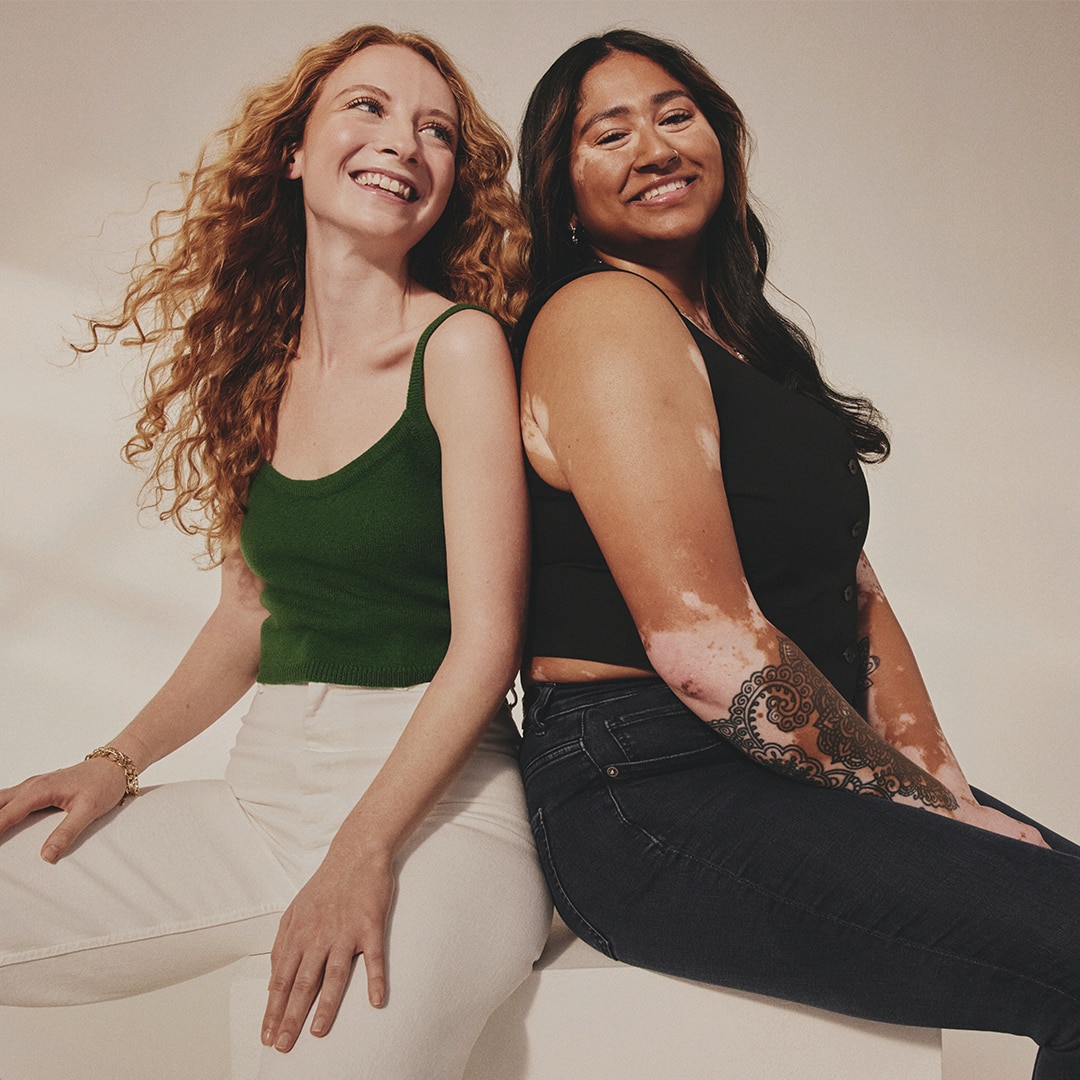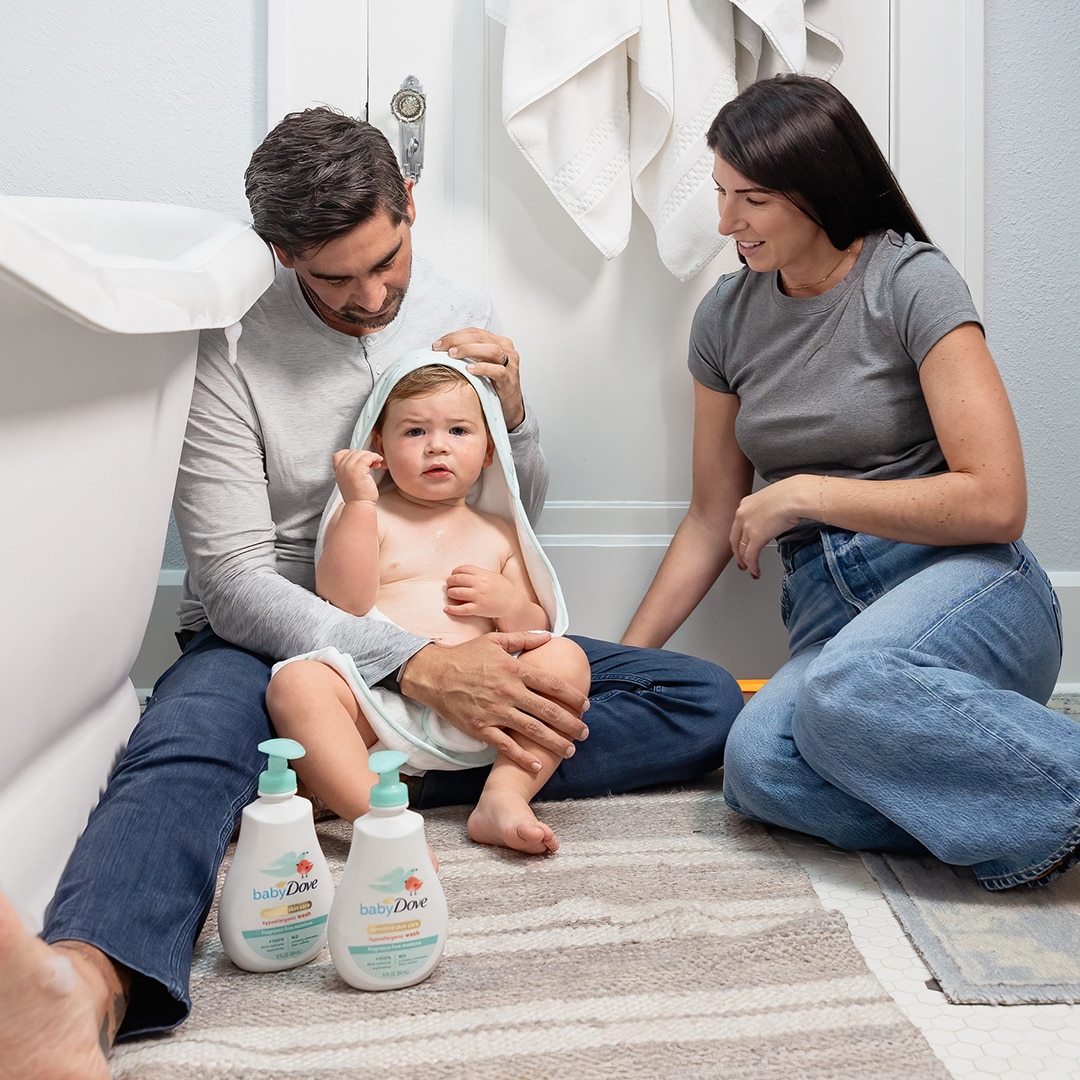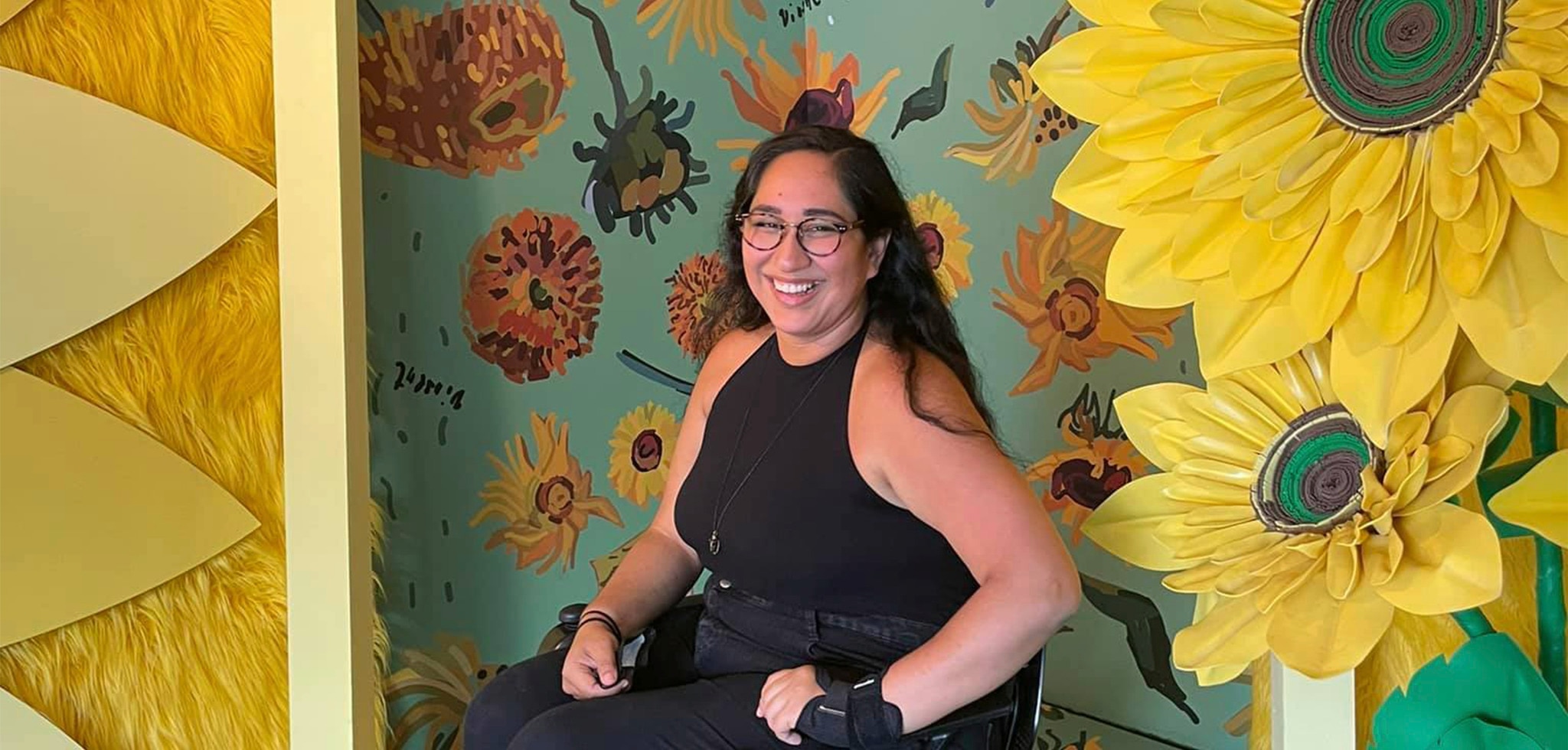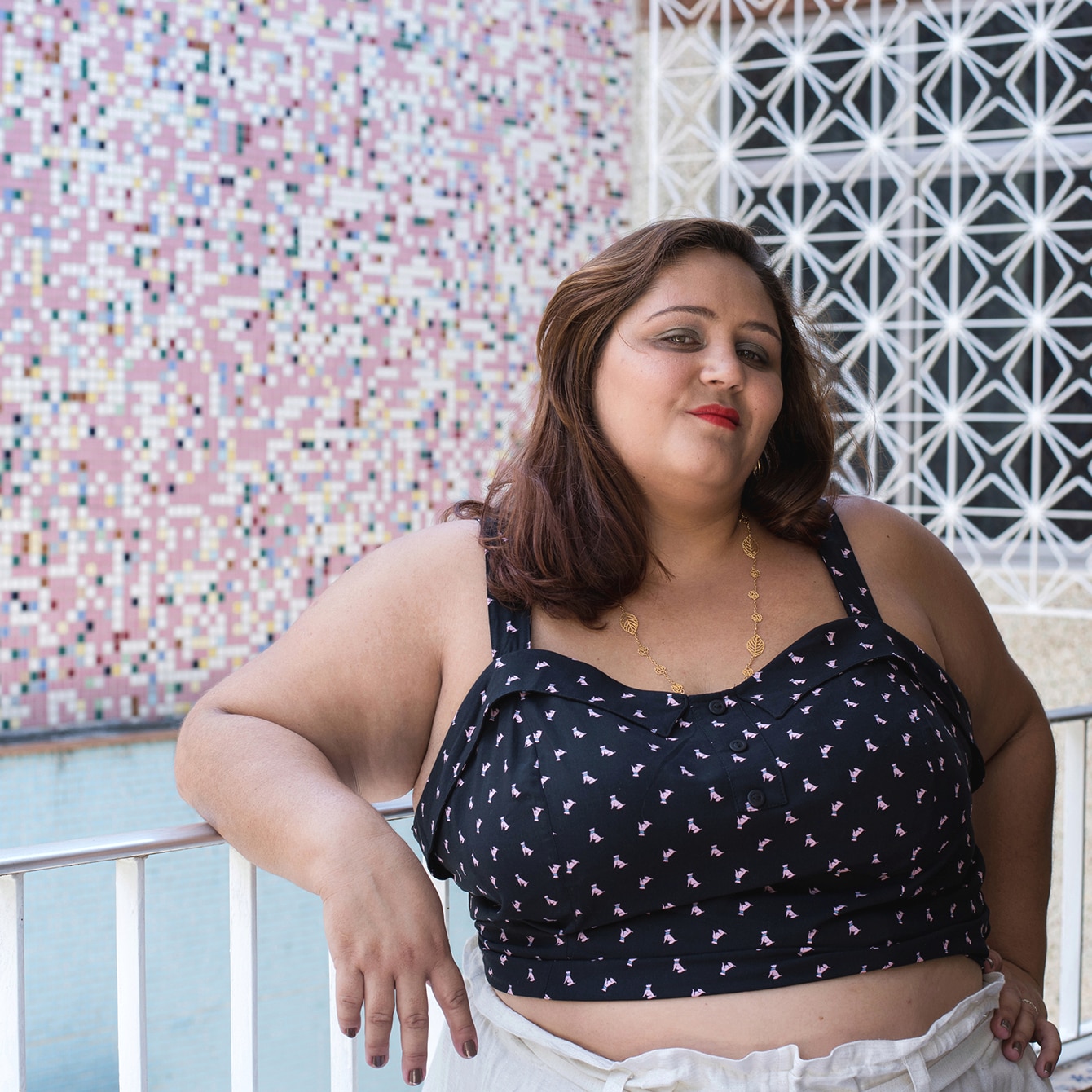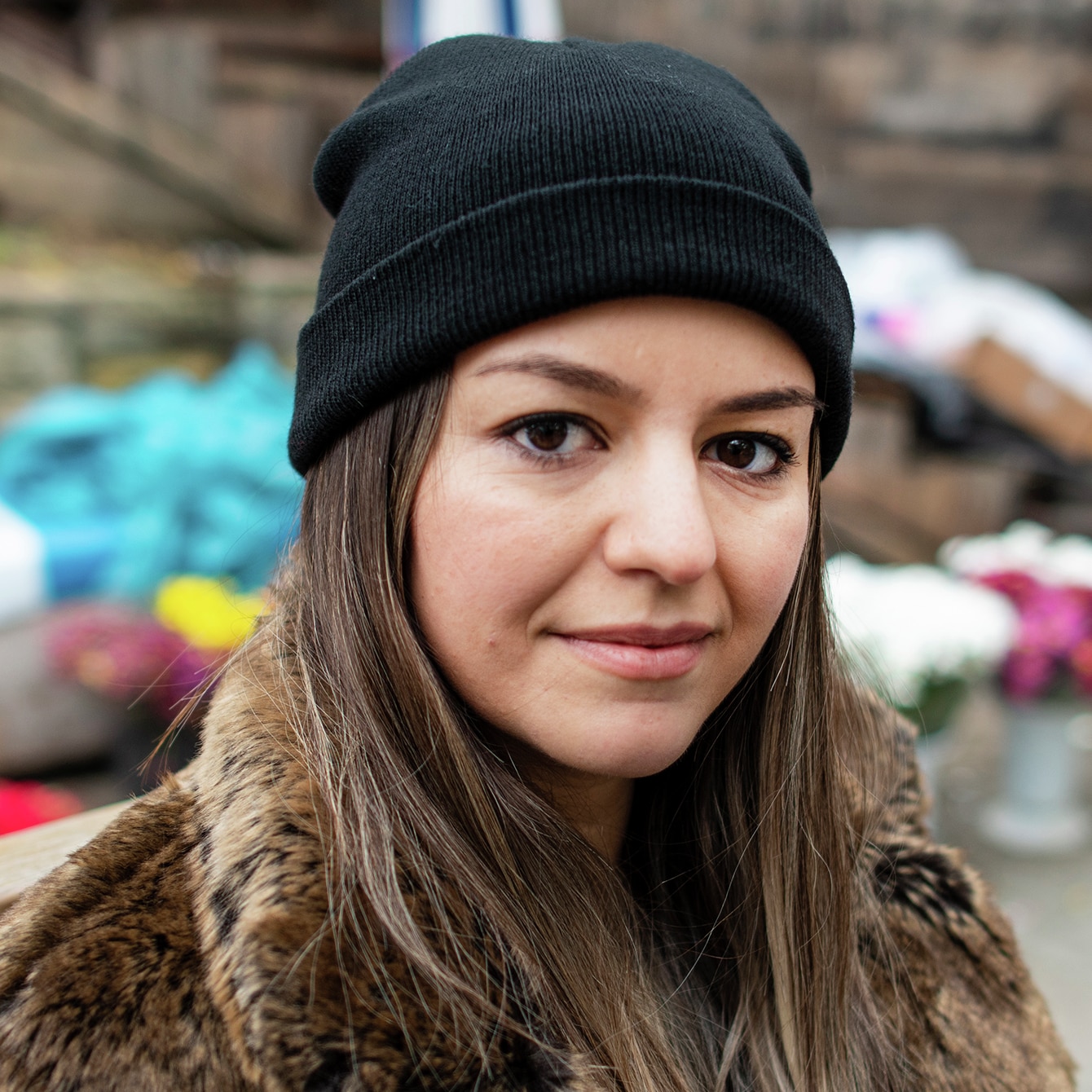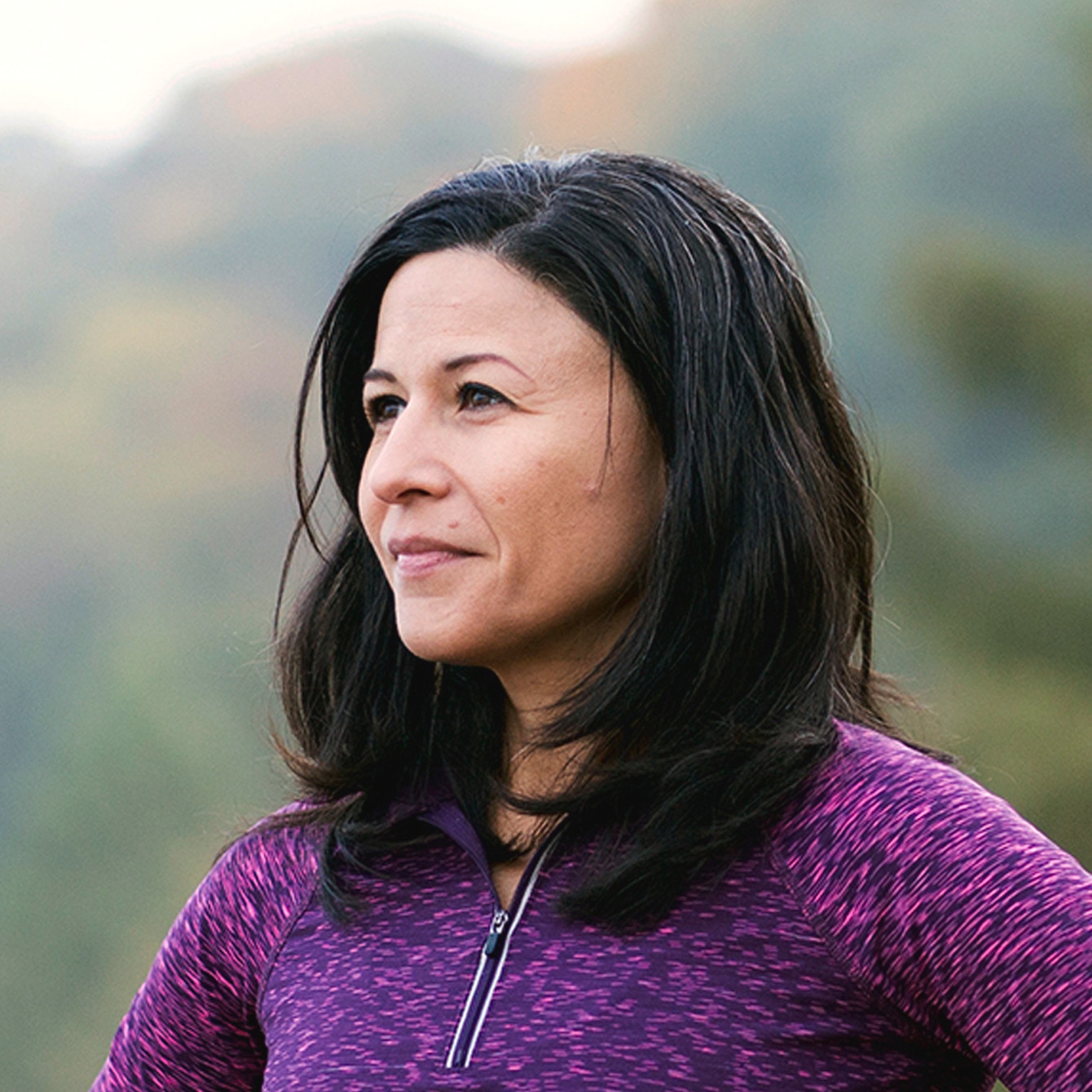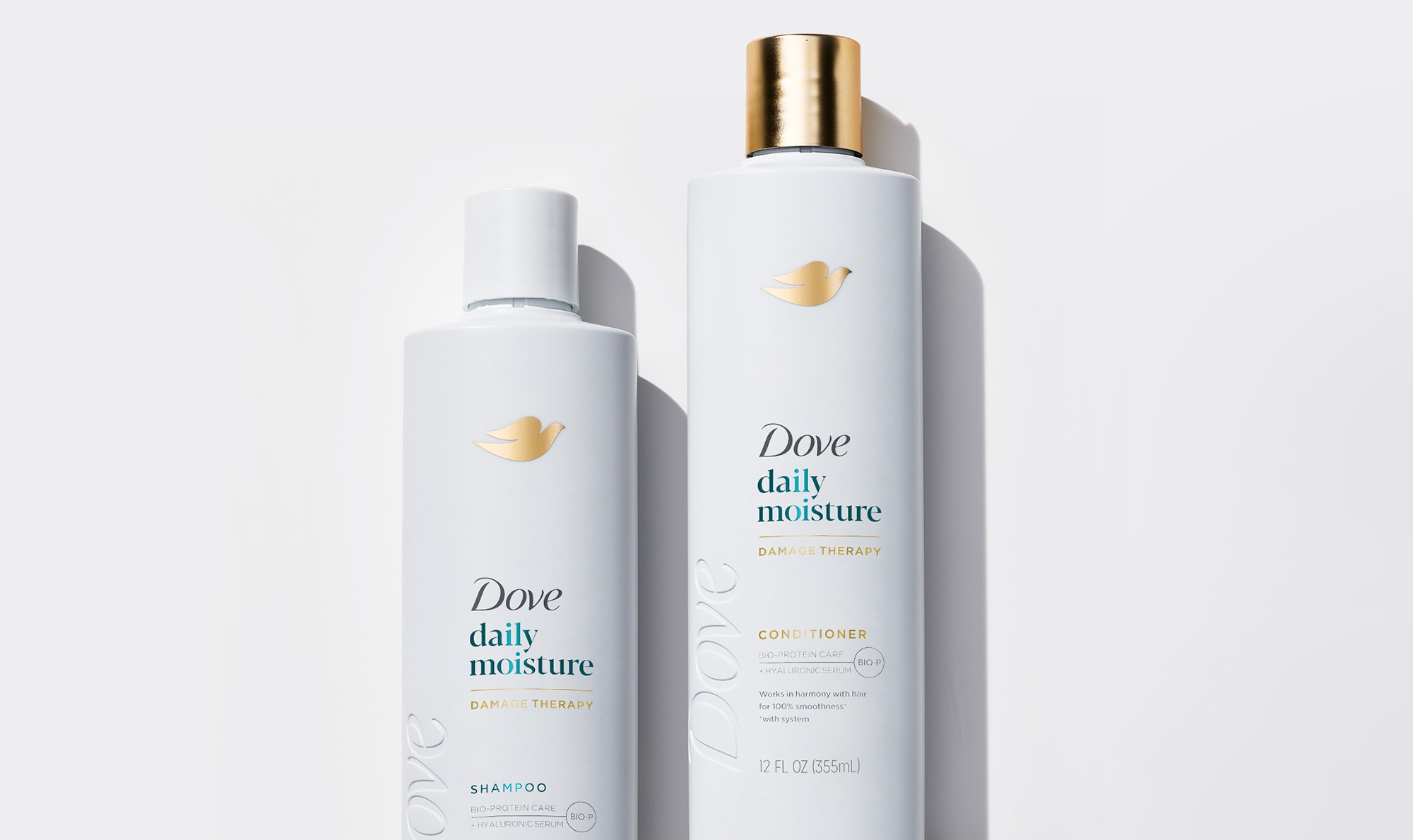Annie's words
For many people, when they think of the body positivity movement, ‘disability’ isn’t something that quickly comes to mind, nor does disability culture and pride, in an overtly ableist society. Certain positive phrases and environments often lean on health as a reason to love our bodies. I’m confronted with statements like: “Love your body! It works so hard, filling your lungs, keeping your heart in rhythm, you have legs to run and arms to embrace…”. I always think, “And if we didn’t have those things... should we NOT love our bodies?” Things like that are a reminder of how disability is often not considered and is actively erased in body positive spaces.
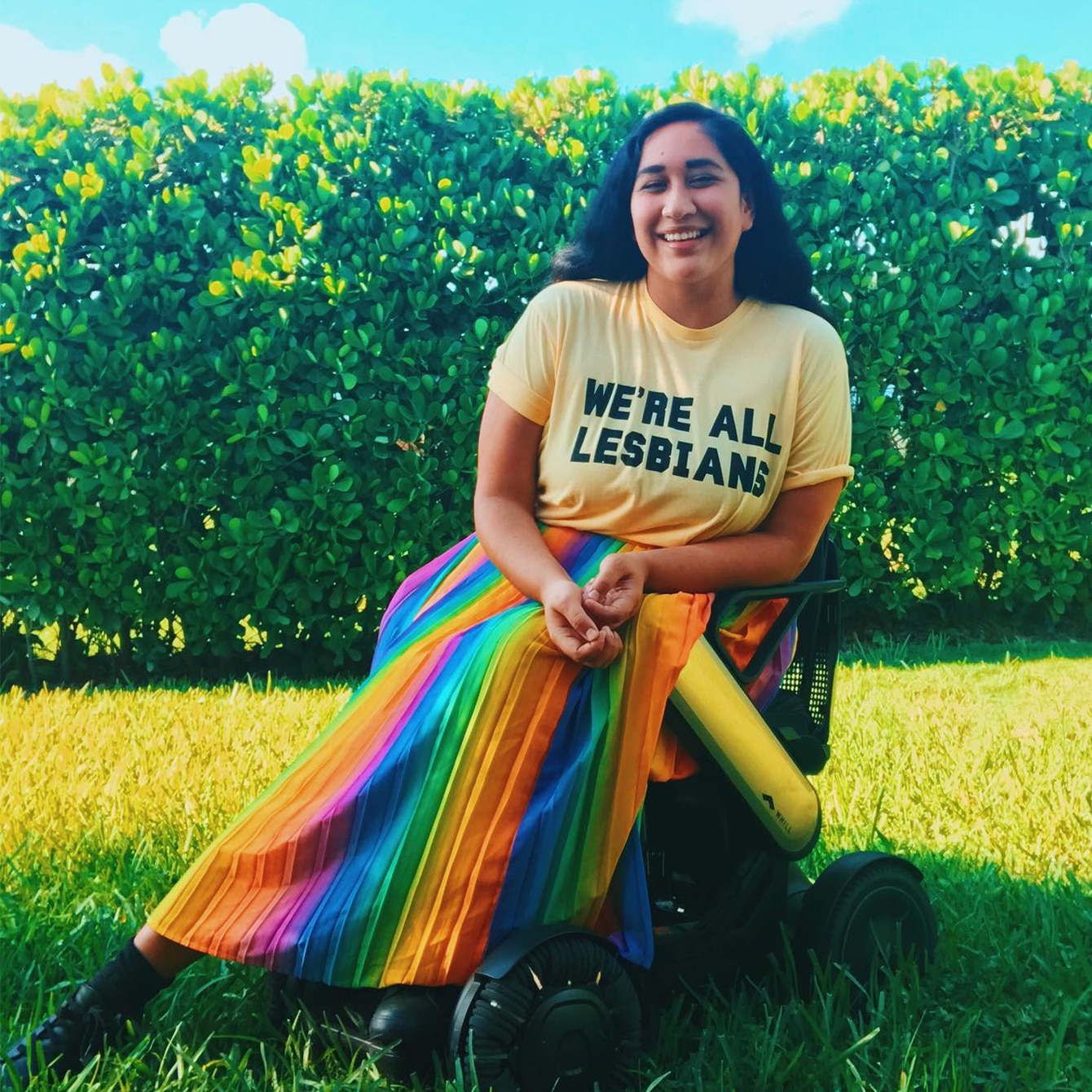
Ableism, like so many other forms of oppression, is reinforced by massively unchallenged beauty ideals and mainstream representation. Visibly apparent disabilities, whether mobility aid users, amputees, people with scars, skin or facial differences and disfigurements, are consistently underrepresented, misrepresented, and outcasted as freaks or villains.
In the years I’ve spent in recovery from disordered eating and Body Dysmorphic Disorder, it was learning about ableism and fatmisia (fat antagonism) and understanding them as injustices that led me down a path to stop hating my body. Something I’ve found to be true is that having an awareness of social injustice can help us heal our relationship with our bodies, which in turn helps heal our prejudices against others, too.'
While I was running ‘Stop Hating Your Body’, my body image and recovery focused blog, I was introduced to the disability community online. It became quite clear that the community was, and still is, in great need of being included and represented in body positive spaces.
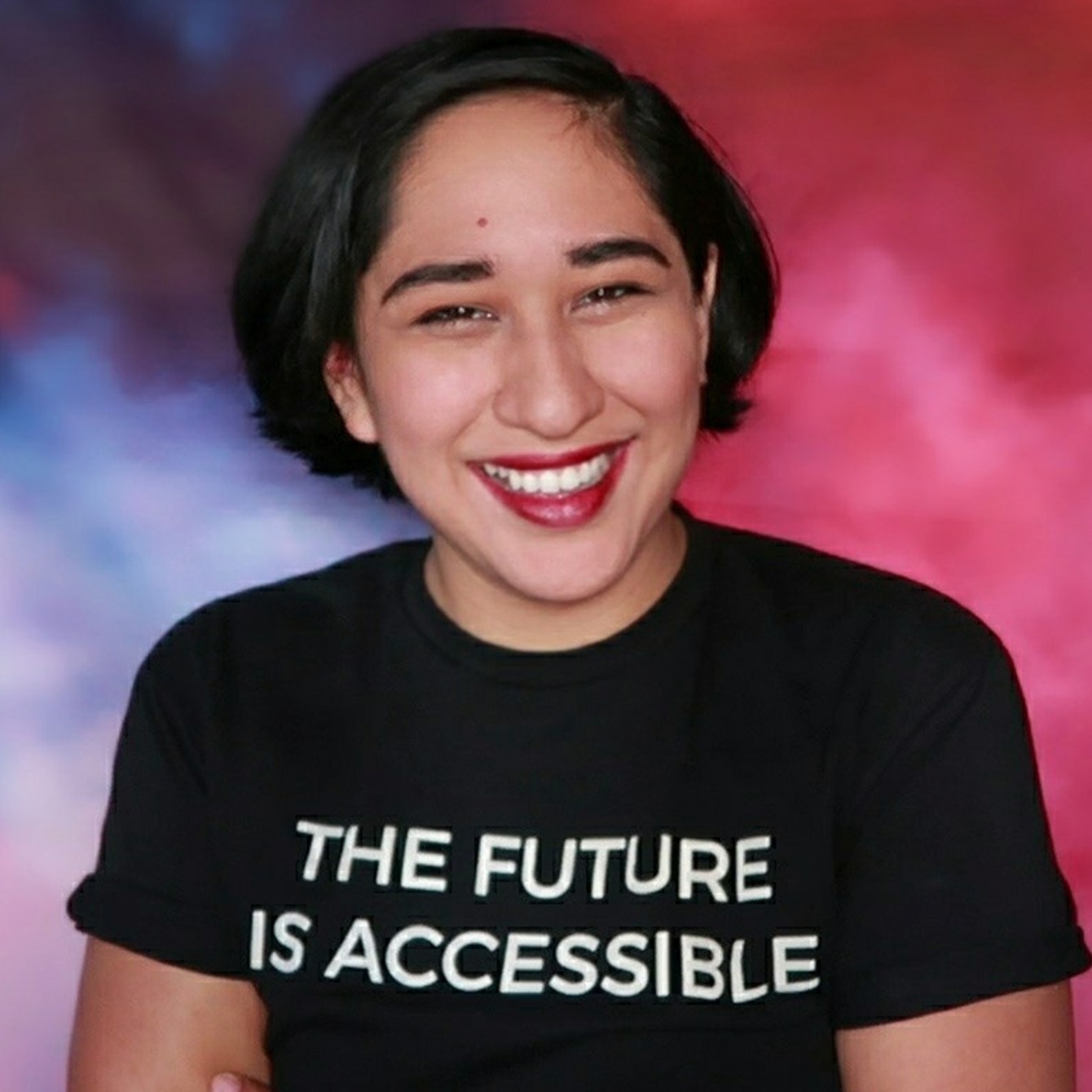
So, when I then became a wheelchair user myself at the age of 23, I’d already been presented with various images of young people using wheelchairs, canes, and other mobility devices. The limited representation of mobility aid users online gave me a deeper understanding of what body diversity really means. And after a very brief moment of grief and insecurity about my body, I found myself quickly wanting to be the representation that I needed. I wanted to hold my head high and be visible in the hope that anyone else experiencing those same feelings could feel them as momentarily as I did – and come into their disabled identity with unshaking pride.
Because ableism is so deeply ingrained in society, for many people it’s an incredibly difficult thing to unlearn; to shake off fear and pity and start celebrating diversity and seeing everyone as equals. I’ve only scratched the surface in the dialogue about disability and body positivity. But I hope that the more we have these conversations, open our minds to learn and unlearn, and take action, the closer we are to equity and equality.
